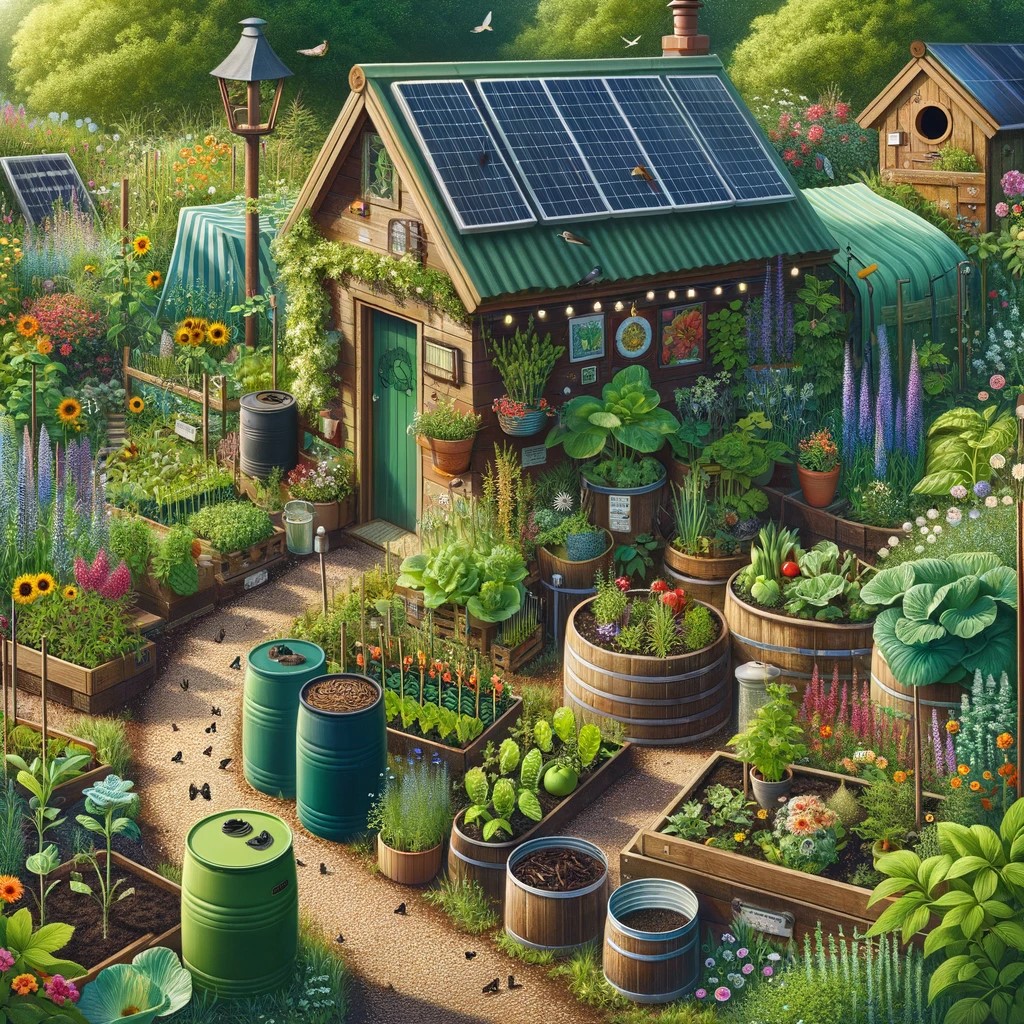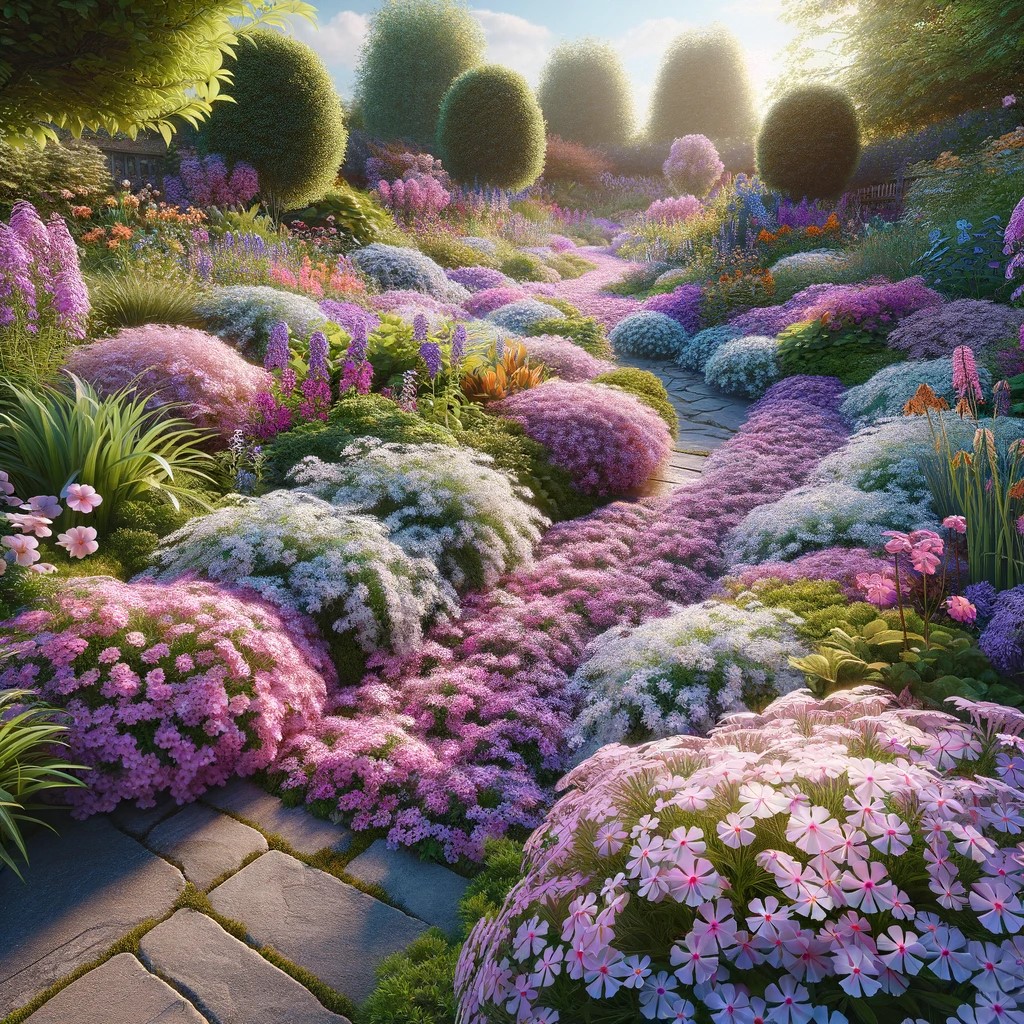Tips for an Eco-Friendly Garden

What is Sustainable Gardening?
Sustainable gardening is all about keeping our planet happy and healthy.
It’s a way of gardening that helps nature, not hurts it.
Why Do We Do It?
We do it to make sure birds, bugs, plants, and us live better together.
How Do We Garden Sustainably?
We use organic stuff to fight off pests.
We figure out smart ways to use less water.
Improving soil health is a big deal for us.
Recycling and Composting
We love recycling and turning leftovers into compost.
This helps us cut down on trash.
Biodiversity is Key
Adding different native plants is our secret weapon.
It makes our gardens full of life and super interesting.
The Big Goal
By gardening this way, we’re building greener, healthier spaces.
And we’re making the world a better place, bit by bit.

How do I start a sustainable garden?
- 1. Choose a suitable location: Look for a sunny spot in your yard or on your balcony that gets at least 6-8 hours of sunlight per day.
- 2. Start small: Begin with a few easy-to-grow plants like herbs, tomatoes, lettuce, and flowers. As you gain experience, you can expand your garden.
- 3. Build raised beds or containers: Using raised beds or containers will help with drainage and prevent soil compaction. Make sure they are made from sustainable materials like reclaimed wood or recycled containers.
- 4. Use organic soil and compost: Use organic soil that is free from chemicals and additives. Mix in compost to improve soil fertility and provide nutrients for your plants.
- 5. Collect rainwater: Set up a rain barrel to collect rainwater for watering your garden. This is a sustainable way to conserve water and reduce your reliance on municipal water supplies.
- 6. Plant native species: Choose plants that are native to your region as they will be better adapted to the local climate and require less water and maintenance.
- 7. Practice organic gardening: Avoid using synthetic pesticides and fertilizers. Instead, use organic methods like companion planting, crop rotation, and natural pest control to maintain a healthy garden.
- 8. Mulch: Mulching your garden with organic materials like straw, leaves, or compost will help retain moisture, suppress weeds, and enrich the soil.
- 9. Harvest and conserve: Harvest your produce when it is ripe and preserve any excess through canning, freezing, or drying. This will help you enjoy the fruits of your labor throughout the year.
- 10. Monitor and learn: Keep an eye on your garden and learn from your successes and failures. Experiment with different plants and techniques to find what works best for your unique space.
How do I make my backyard garden sustainable?
Save Water, Save the Planet
Water wisely with things like drip irrigation and collecting rainwater.
Go Organic
Ditch the chemicals.
Use natural fertilizers and pest control to keep your garden and the planet healthy.
Choose Smart Plants
Opt for native and drought-resistant plants that love your local weather.
Compost is Key
Turn your kitchen and yard waste into super soil with composting.
Rotate and Partner Up
Rotate your crops and plant friendly neighbors together to outsmart pests naturally.
Recycle with Compost and Worm Bins
A compost or worm bin turns scraps into gold for your garden, and cuts down on trash.
Boost Biodiversity
Plant a mix to attract bees and friends who keep your garden happy.
Build with Eco-Friendly Materials
Use reclaimed wood or recycled plastic for garden beds and structures.
Mulch for Health
Mulch keeps your soil moist and weed-free, and makes your garden look tidy.
Spread the Word
Learn all you can about sustainable gardening and share the wisdom to make a difference.

How do you make compost eco-friendly?
Use organic materials
To make compost eco-friendly, use only organic materials such as fruit and vegetable scraps, coffee grounds, yard waste, and paper products.
Avoid pesticides and chemicals
Do not include materials in your compost pile treated with pesticides or other chemicals, as these can harm beneficial organisms in your compost pile and negatively impact the environment.
Maintain a proper balance
To create healthy compost, maintain a proper balance of green (nitrogen-rich) and brown (carbon-rich) materials in your compost pile. This balance will help speed up the decomposition process and produce nutrient-rich compost.
Turn and aerate regularly
Turning and aerating your compost regularly helps introduce oxygen into the pile, which speeds up decomposition and prevents the production of methane, a harmful greenhouse gas.
Use a compost bin or pile
Use a compost bin or pile with a secure lid to prevent wildlife from accessing your compost pile and creating a mess.
Recycle and use compost
Utilize the compost you create in your garden or yard to enrich the soil and reduce the need for chemical fertilizers. This will help create a closed-loop system that is beneficial for both your plants and the environment.
How do you create a sustainable community garden?
Let’s embark on a green adventure—creating a community garden that everyone will love! Here’s how we can make it bloom:
- What’s our dream garden like? Let’s chat with everyone—neighbors, friends, and local heroes. What do we want? A magical place where flowers meet veggies and where everyone feels at home. We’ll think about where to plant this dream, how big it should be, and make sure everyone can come and enjoy it.
- Who’s with us? We’re not alone! Let’s join hands with local businesses, schools, and even the city hall. Imagine the power when we all chip in—funds, tools, and smiles. It’s teamwork time!
- Green is the way. Ever heard of composting or rainwater harvesting? We’re going all in with nature-friendly gardening! Organic is our middle name, and we’re inviting the birds and the bees with native plants. Mother Earth will thank us.
- Learn, grow, eat, repeat. Ever wanted to be a gardening pro or a sustainability superstar? Here’s our chance! We’ll host fun workshops and share our know-how. Get ready to dig, plant, and munch on the freshest food in town.
- Keeping our garden happy. A happy garden needs a little TLC. We’ll make a plan—who waters when and who’s on weed patrol. It’s like a garden party, but with gloves and shovels. Everyone’s invited to help out.
- Everyone’s garden. Imagine a garden where everyone can stroll, sit, or sow. We’re making it super welcoming, with paths for wheelchairs and raised beds for easy reach. It’s our community’s cozy green corner.
- How’s our garden doing? We’ll keep our eyes open and listen. What’s working? What needs a tweak? It’s all about growing—not just plants, but our community spirit, too.
- Garden parties, anyone? Picture this: sunny days, garden tours, and picnics with neighbors. Our garden will be the place to be, forging friendships and making memories.
This garden is more than plants and paths—it’s about us, coming together, learning, and growing. Let’s make it happen! Who’s in for the adventure?